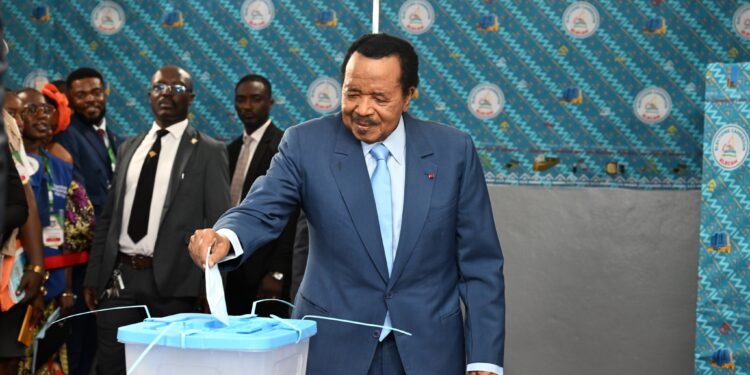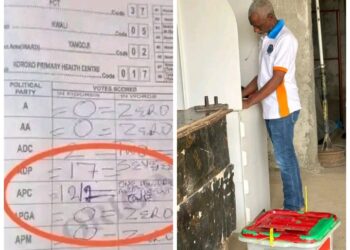President Paul Biya has been re-elected for an eighth term following Cameroon’s presidential election held on October 12, 2025.
The 92-year-old leader secured 53.66 percent of the votes, according to official results announced by the Constitutional Council on Monday.
The declaration has drawn mixed reactions across the country, with opposition supporters challenging the credibility of the process. Biya’s closest rival, Issa Tchiroma Bakary, a former minister and one-time ally, garnered 35.19 percent of the votes. He had earlier declared himself the winner, alleging widespread irregularities and calling on the incumbent to concede defeat.
The vote took place amid deepening frustration over rising prices, youth unemployment, and ongoing insecurity in the Anglophone regions and the Far North. Opposition groups and civil society organizations have accused the ruling party of manipulating the process to extend Biya’s more than four decades in power — a claim the government denies.
In the coastal city of Douala, protests broke out as early as Sunday evening. Reuters reported that at least four people were killed when security forces clashed with demonstrators demanding transparency in the vote count. Several opposition figures were reportedly detained.
Despite the tension, Biya’s supporters celebrated in Yaoundé and other strongholds, describing his victory as “a vote for peace and continuity.” State media broadcast images of jubilant crowds waving the national flag and chanting the president’s name.
Analysts say Biya’s re-election consolidates his position as one of Africa’s longest-serving leaders. Having taken office in 1982, his new term would extend his rule beyond four decades, making him the world’s oldest sitting head of state.
The opposition has yet to announce whether it will challenge the results in court, but observers warn that the unrest could deepen if grievances are not addressed. International partners, including the African Union and the United Nations, are expected to issue statements urging calm and dialogue.
For many Cameroonians, especially the youth, the outcome has renewed debate about leadership succession, democracy, and the country’s future. “People are tired,” said one university student in Yaoundé. “We need a change that reflects our generation.”
As celebrations and protests continue, the world watches how Cameroon navigates another chapter under Paul Biya’s long and controversial rule.





